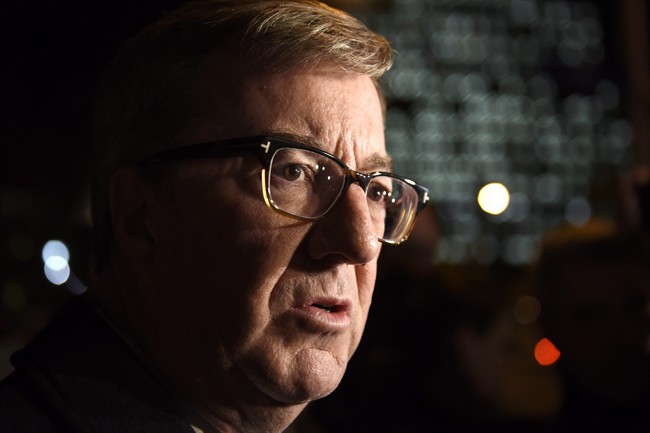With the legalization of recreational marijuana exactly seven weeks away, staff at Ottawa City Hall have been ordered to “take all the necessary steps” so they’re ready to help the new council elected on Oct. 22 make some quick decisions about the province’s proposed private pot shop retail system, scheduled to launch in April 2019.

At city council’s meeting on Wednesday, Ottawa Mayor Jim Watson directed staff working on the cannabis file to start preparing options for public consultations and outreach – whether they be online surveys or town hall meetings – so the city can “gather feedback in a timely manner” once the province introduces its legislation on the private store model, expected sometime this fall.
The mayor also asked staff to submit feedback from those consultations to the province – and to analyze the potential effects of a decision by the future council to completely “opt out” of having private shops selling legal weed in Ottawa, with Gatineau just across the river.
“Obviously the cannabis file is moving very quickly. It becomes legal in October, stores are able to open in Ontario in April, and we also have an election that falls in between,” Watson told reporters following council’s meeting. “So it was important for me to direct staff to start the process of public consultation in many forms.”
The provincial government announced earlier this month it was abandoning the former government’s plan to sell cannabis through government-run stores and that it would implement an online and private store model instead.
While more questions than answers remains the status quo for Ontario’s municipalities in the aftermath of that announcement, what cities and towns do know is they’ll have a one-time chance to opt out of having physical cannabis stores in their districts altogether.

Get breaking National news
But they won’t have much time to consider and make that decision. Cannabis becomes legal on Oct. 17, five days before new local councils are elected across Ontario – and municipal leaders were warned at a conference last week that the opt-out issue should be their first order of business following the election.
“I don’t think we’re prepared,” Watson said of the pace at which the cannabis file is moving.
The province also said last week that municipalities that choose to opt out of private cannabis stores would be allowed to opt in down the road.
Control over location, number of pot shops up in the air
Watson reiterated on Wednesday that the city still has no idea whether it will have control over the number, location and concentration of private marijuana stores in Ottawa – issues the city previously didn’t really have to think about under the Liberals’ LCBO model.
The mayor said the city should have “some ability … to ensure one area is not oversaturated with pot shops and another area has no pot shops.” He said many residents, including himself, are also concerned about avoiding cannabis stores situated next to schools.
“It was a lot easier when it was an LCBO model, to be perfectly honest, because there was government-sanctioned location,” Watson said.
WATCH: Marijuana proximity: The farther away from Ontario schools, the less space for stores

On those issues, Watson also ordered staff to analyze the powers the city has right now to zone cannabis storefronts and manufacturing locations.
He also asked them to reach out to the Ford government, Ottawa Public Health, the city of Toronto and the Association of Municipalities Ontario to “identify any opportunities for a common approach to municipalities’ ability to zone for retail cannabis locations, especially regarding separation distances.”
Cities want clarification on funding
Watson said funding is another major issue that needs to be cleared up for municipalities.
The former Liberal government told municipalities it would give them $40 million to split over two years to help them cover costs related to the legalization of cannabis. The Ford government has indicated it’s sticking with that plan.
But Watson questions whether that will be enough.
“We estimated that under the old model, with LCBO stores, that we would require about $8 million to fund all of the inspections, extra policing costs, bylaw, fire, public health and so on,” he said. “Toronto’s mayor told me they need at least $23 to $24 million (and) if we need eight million, that gobbles about 80 per cent of the dollars for the entire province. So that’s not gonna fly.”
“We need some idea as to where the money’s going to come from because the senior levels of government reap the benefits from taxation but we end up with the expenses paid for by taxpayers, which is not fair.”








Comments